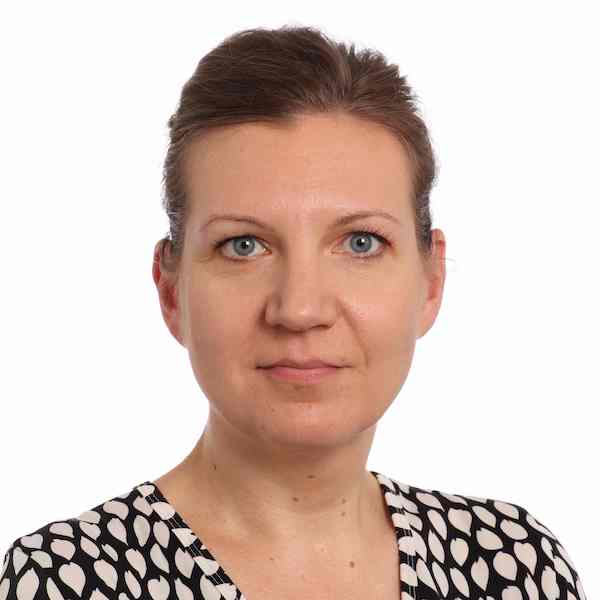Semester Residency is a Success Story for Hatavara
by

Semester Residency is a Success Story for Hatavara
February 29, 2024
Mari Hatavara joined the Vol community for the spring semester as the UT Humanities Center’s first Fulbright Scholar-in-Residence. She comes to Rocky Top from Tampere University in Finland, where she is Chair Professor of Finnish Literature.
Hatavara brings to UT a research background in narrative theory and analysis, free indirect discourse, unnatural narrative communication, ekphrasis (the rhetorical literary description of a scene or work of art), fictionality, and the poetics of historical fiction and metafiction.
“Narratives are crucial to our life, how we understand our own identity and the minds of others, communicate views on and visions for society, and generally make sense of the world,” said Hatavara. She is intrigued by the ability of narratives to communicate the way an experience feels.
“Storytelling is a powerful means to understand other perspectives and to build bridges between different groups and points of view,” she said. “Of course, stories can also be used for malign purposes, like propaganda. For example, in political talk the aspirations and motifs of others are often appropriated using narrative resources. Making those resources and their use visible also makes it easier to resist phenomena like disinformation.”
She contributes insight on these varying aspects in her role as Scholar-in-Residence.
“Narrative studies is strongly represented at UT, particularly due to the work by professors Amy Elias and Lois Presser,” said Hatavara. “I hope to add to that with my expertise and further to boost the interest towards interdisciplinary work on narratives.”
Elias, director of the Humanities Center and Chancellor’s Professor and Distinguished Professor of English, invited Hatavara to speak to her class, giving her an opportunity to connect and interact with students. She broadened these connections for students and faculty through a Distinguished Lecture presentation in late February.
“I greatly enjoyed the opportunity to give the lecture,” said Hatavara “The research I was talking about—computational recognition of narratives in political talk—is ongoing, so I found it very helpful to explain what my research team has done thus far and what our current challenges are. The audience was extremely knowledgeable of digital humanities and narrative studies, so the discussion was inspiring.”
Presser, Distinguished Professor in the Humanities and director of graduate studies in the UT Department of Sociology, also spent time as a Fulbright Scholar at Tampere University and plans for collaboration were formed.
“My ongoing collaborative research with Mari on narratives of serious victimization is much enriched by her expertise in narrative theory,” said Presser. Their project illuminates important points of narrative contact between events and experiences using data from interviews with victims of sexual harassment and sexual violence. Hatavara’s ongoing work equally benefits from their research partnership.
“I’m particularly intrigued by the narrative criminology research area, which is mostly new to me,” said Hatavara. “Working closely with Professor Presser provides me the best possible access to the field, and I want to bring that knowledge back to my home university in Finland to further diversify our work on narratives there.”
She has been welcomed across the UT community during her time on campus.
“It’s very impressive to hear about the research carried out here, and I admire the professors’ dedication to their students,” said Hatavara. “The college’s many faculty social events are wonderful, too, and have helped me connect with people across arts and sciences. Besides the academic advances, I hope to take with me some of the inspiring, inviting atmosphere I so much enjoy encountering here at UT.”
Elias looks forward to hosting more scholars-in-residence through the Humanities Center.
“We will continue this program in the future, providing an office and living expenses to the visiting Fulbright scholar over the course of one semester and the opportunity to present their work at least four times in different venues to the university and public communities,” she said. “We will work with ORIED, Global Engagement, and other offices on campus in addition to the College of Arts and Sciences to attract international scholars working in the arts and humanities and to bring new international perspectives to our students and faculty researchers.”
Story by Randall Brown